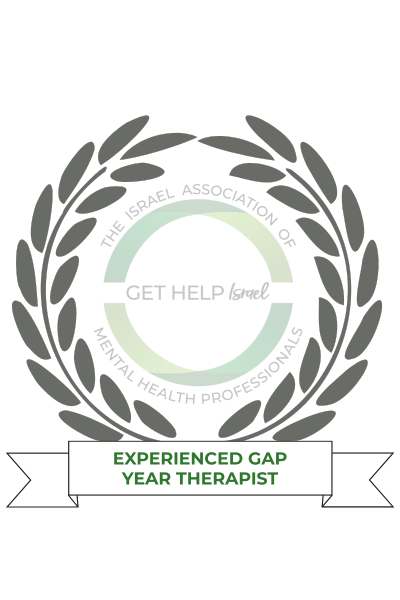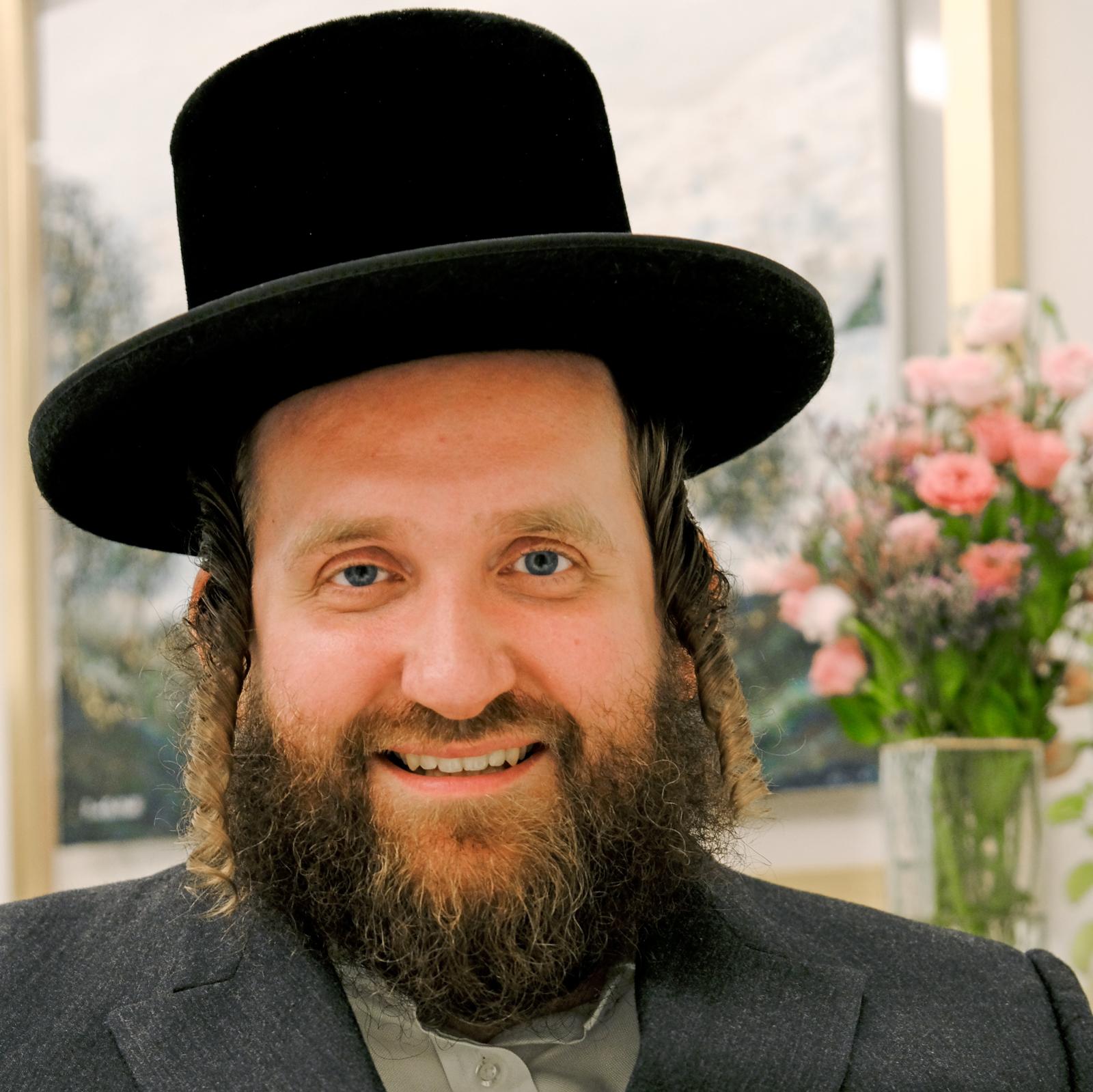Yosef Zev Braver
Credentials
Finances
- שמגר
- ירושלים
- Email Me
-
 Business HoursEvenings
Business HoursEvenings
Yosef Zev Braver
 Verified
Verified
Credentials
Life Coach
CFC
Finances
700+ NIS
N/A
Special Rate for New Olim | Sliding Scale | Student Discount
ABOUT THE THERAPIST
Yosef Zev Braver is a dedicated psychotherapist and coach from within the Chassidish Yiddish-speaking community. Fluent in Yiddish, English, and Hebrew, Yosef Zev specializes in trauma therapy, offering support to individuals and families as they navigate some of life’s most challenging experiences, including PTSD, suicide, treatment-resistant depression, and complex familial dynamics. His approach is known for its warmth, professionalism, and thoughtful application of therapeutic tools, which are always tailored to the unique needs of each client.
Over the past decade, Yosef Zev has had the privilege of working closely with Rabbi Shimon Russell, whose insights have deeply influenced his practice. He is currently pursuing a research project for his Master’s degree thesis in Psychotherapy Studies with the NSPC under Middlesex University. He has completed extensive postgraduate training which includes certifications in Integrative Psychotherapy, Couples and Family Therapy with the Family Institute of Neve Yerushalayim, Conflict Resolution by Dr. Susan Heitler, The Advanced Treatment of Complex Trauma with Dr. Stacey Lebowitz-Levy, IFS Level 2 with Osnat Arbel and Devorah Hochstadter, Ketamine-Assisted Psychotherapy with Dovid Allick, and privately supervised by Dr. Yisrael Levitz.
Yosef Zev integrates elements of Accelerated Experiential Dynamic Psychotherapy (AEDP), Internal Family Systems (IFS), and narrative therapy to provide a holistic framework for exploring and addressing a variety of issues, including intimacy, relationship challenges, self-esteem, and more. He is dedicated to fostering a supportive and confidential space where clients can explore their concerns, develop insights, and cultivate positive changes in their lives.
Clients often appreciate Yosef Zev’s ability to create a calm, supportive environment that fosters genuine progress. He approaches each therapeutic journey with a blend of guidance and respect for the client’s personal experience, ensuring that the process is transparent and centered on meaningful goals. His style is direct and honest, yet always sensitive to the subtleties of each situation.
Whether you’re navigating dating and relationship challenges, struggling with self-esteem issues, or seeking support for personal growth, Yosef Zev is here to accompany you on your journey towards greater well-being and fulfillment. Feel free to reach out to schedule a session or to learn more about how he can support you on your path to healing and growth.
QUALIFICATIONS
CFC
Academy for Family Coach Training
2015
Degree
CFCEducation
Academy for Family Coach TrainingYear of Graduation
2015Years in Practice
10
ADDITIONAL CREDENTIALS
Certified Family Coach 1/28/2015
Certified Parent Coach 12/5/2016
MSc Psychotherapy Studies - New School of Psychotherapy and Counselling - current student, estimated graduation 2023
Integrated Psychotherapy, Couples and Family Therapy - Neve Institute - 2023
IFS Level 1 - 2024
TRAUMA UNIT LEVEL 1 - FUNDAMENTALS - THE FAMILY INSTITUTE OF NEVE YERUSHALAYIM - 2024
DISTANCE COUNSELING
Online Therapy
BLOG POSTS

Healing the Inner Garden: A Journey of Creation, Connection, and Inner Peace
Explore a path to healing that unites therapeutic insights and Jewish wisdom. This article bridges Internal Family Systems, mindful awareness, and timeless spiritual teachings, offering readers a journey toward self-discovery, purpose, and inner peace.
PRIMARY SPECIALTIES
Couples / Relationship / Marriage Counseling
Executive / Career / Life Coaching
Family Issues
Spiritual Concerns
Trauma / Post Traumatic Stress Disorder PTSD
ADDITIONAL SPECIALTIES
Adjustments
Depression
Family Issues
Life Transitions
Mood Disorders
CLIENT FOCUS
Population
Adolescents
Adults
Couples
Families
Men
Languages Spoken
Hebrew
English
Yiddish
TREATMENT APPROACH
Emotion-Focused TherapyEmotion-focused therapy (EFT) is a type of psychotherapy that is based on the idea that emotions play a key role in a person’s mental health. EFT focuses on helping people to identify, accept, and manage their emotions in a healthy and productive way. The goal of EFT is to help people identify and express their emotions, understand how those emotions impact their behavior, and learn how to manage their emotions in a way that is adaptive and healthy. EFT is a research-based approach to psychotherapy that has been found to be effective in helping people manage a variety of mental health conditions. It has been used successfully in the treatment of individuals, couples, and families, as well as with groups. EFT is particularly beneficial for people who struggle with emotional regulation, mood disorders, anxiety, trauma, and relationship issues.
Existential PsychotherapyExistential psychotherapy is a form of psychotherapy that emphasizes an individual’s subjective experience of existence. It is a philosophical approach to psychotherapy that views the individual as ultimately responsible for creating a meaningful life. This form of psychotherapy helps individuals explore their subjective experiences, understand their personal values and beliefs, find ways to live more authentically, and make meaningful choices. The ultimate goal is to help the individual reach a greater sense of self-awareness and personal fulfillment.
Family Systems TherapyFamily Systems Therapy is an approach to psychotherapy that emphasizes the importance of understanding how the family functions as a whole, and how individual family members interact and affect one another. It focuses on how family dynamics, such as communication patterns, roles, and power dynamics, shape behavior, and how changing these dynamics can lead to positive change. Family Systems Therapy is a collaborative approach, where the therapist works with the family as a whole to identify and address areas of conflict and distress.
Holistic PsychotherapyHolistic psychotherapy emphasizes the individual's interconnectedness between the individual's physical, mental, emotional, and spiritual aspects and views them as inseparable components of a single holistic system. Holistic psychotherapy focuses on understanding how these components interact and affect a person’s wellbeing. The goal of holistic psychotherapy is to create a sense of wholeness and harmony within the individual, and to foster self-awareness and self-care. Holistic practitioners use a variety of approaches, including traditional talk therapy, mindfulness practices, and body-based therapies like movement therapy. They also may incorporate nutrition, physical activity, and other lifestyle factors into treatment plans.
Internal Family Systems (IFS)Internal Family Systems (IFS) is an evidence-based psychotherapy that uses the metaphor of an internal family of parts to help people gain awareness of how different parts of themselves can interact in healthy and unhealthy ways. IFS encourages people to become curious about their different parts, with the goal of helping them gain access to their true Self or core. Through this process, people can learn to recognize and care for the different parts of themselves, as well as develop compassionate understanding for the origins of their parts. A key principle of IFS is that each part within the person has its own positive intention and is trying to protect the person in some way. By understanding the positive intention of each part, the practitioner and client can work together to help the parts feel heard and understood, and to find more adaptive ways of meeting their needs. IFS has been found to be an effective treatment for a variety of mental health issues, including depression, anxiety, trauma, and relationship issues.
Music TherapyMusic therapy is a type of expressive art therapy that can be used to treat a variety of mental health issues. Music therapy interventions can include active music making, listening to music, songwriting, music imagery, singing, and lyric analysis. Through these interventions, clients can experience increased emotional regulation, improved communication, and increased motivation. Music therapy can also be used to address social and behavioral issues such as aggression, impulsivity, and noncompliance. As with all expressive arts approaches, the therapeutic use of music can sometimes elicit responses that may not appear through more traditional forms of treatment. When people find it difficult to express themselves verbally, music therapy can help them access and express feelings that would be more difficult for them to talk about in a more traditional form of therapy. No background in music is required for a person to benefit from this approach.
Narrative TherapyNarrative therapy is a form of psychotherapy that focuses on the stories, or narratives, of a person's life in order to help them gain insights into their situation and develop skills to make positive changes. It is based on the idea that people construct their own stories and meanings to make sense of their lives and experiences. It emphasizes the strengths, values, and skills of the person, while also exploring the influences of culture and context on their life. Narrative therapy seeks to empower individuals by helping them to identify and use their inner resources to overcome challenges and create positive change.
Trauma-Focused Cognitive Behavioral Therapy (TF-CBT)Trauma-Focused Cognitive Behavioral Therapy (TF-CBT) is an evidence-based practice used to help children, adolescents and their parents who have experienced a single or multiple traumatic events. This type of therapy combines cognitive and behavioral strategies to help people process their traumatic experiences, manage their distress, develop coping skills, and restore their sense of safety and well-being. TF-CBT focuses on education and skill-building, creating an environment of safety and trust, and using therapeutic activities to help people understand their responses and control their symptoms. Children are shown how perceptions may be distorted and are given the tools to redesign those perceptions. TF-CBT is a skills-based model, and it requires the child and parent to practice its components in order to be optimally effective. Parents and children are commonly asked to practice skills at home.
SERVICES OFFERED
Individual Therapy
Couples Therapy
Family Therapy
Consultation
Coaching

Therapist's Experience with Gap Year Students
I specialize in guiding English or Yiddish-speaking gap year students from the US or Europe during their Shana Aleph or Shana Bet in Yeshiva. I focus on fostering healthy emotional development and self-discovery. My goal is to support students in their journey of self-exploration and personal growth.
BLOG POSTS

Healing the Inner Garden: A Journey of Creation, Connection, and Inner Peace
Explore a path to healing that unites therapeutic insights and Jewish wisdom. This article bridges Internal Family Systems, mindful awareness, and timeless spiritual teachings, offering readers a journey toward self-discovery, purpose, and inner peace.

 Verified
Verified


